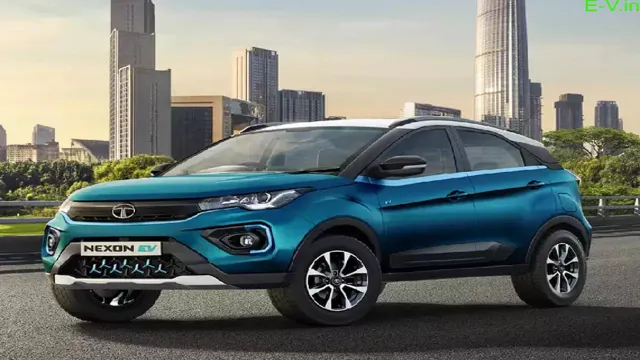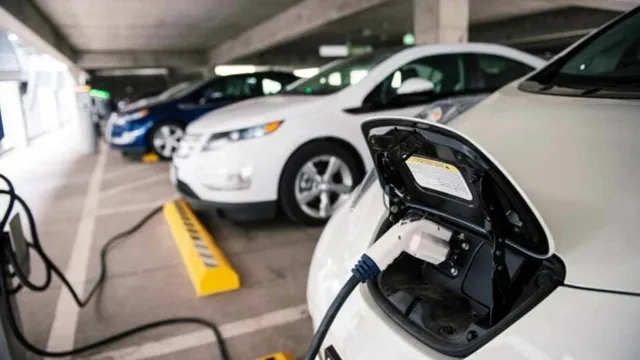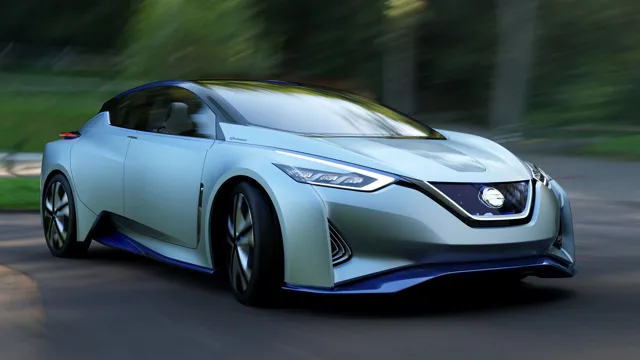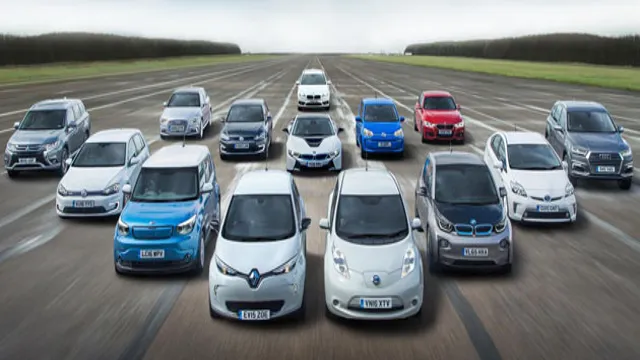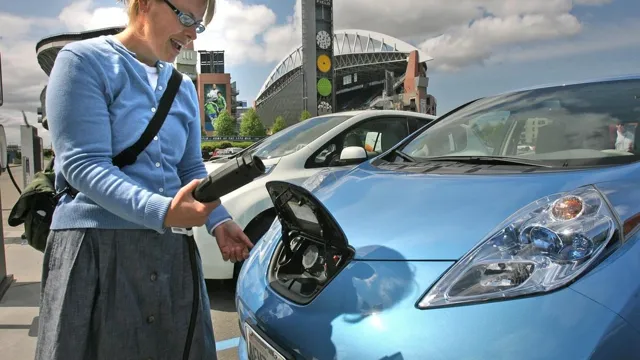Revving up the Future: Latest Electric Car India News and Updates
As India prepares for a greener future, the adoption of electric vehicles is on the rise, with companies rolling out new models and the government announcing incentives and policies to promote their use. The latest news in the world of electric cars in India is generating a buzz among car enthusiasts and environmentalists alike. From the launch of the much-awaited Tesla Model 3 to the announcement of a new affordable electric car by Mahindra, the electric car segment in India is set to witness a revolution.
But what does this mean for the average Indian? Will electric cars become mainstream, or are they still a niche category? Join us as we explore the latest developments and delve deeper into the world of electric cars in India.
Sales Numbers Show Growing Interest
According to recent sales data, it’s clear that electric cars are gaining more attention in India. With concerns over air pollution and rising fuel costs, it’s no surprise that more people are turning to electric vehicles as a sustainable and cost-effective alternative. In fact, sales of electric cars in India have increased by over 130% in the last year alone.
However, it’s not just individual consumers who are showing interest in these cars – many businesses and organizations are also making the switch to electric vehicles. With the government’s push towards cleaner energy and incentives such as reduced taxes and registration fees, it’s likely that this trend will continue to grow in the coming years. Overall, the future looks bright for electric cars in India and it’s exciting to see the positive impact they’re having on the environment and the economy.
Data reveals increase in electric car sales in India
India has witnessed a significant rise in the sale of electric vehicles lately. According to data gathered by CleanTechnica, sales skyrocketed by 128% in 2020, compared to the previous year. With India being the second most populous country globally, this shift towards electric vehicles is a significant game-changer in the global efforts to reduce carbon emissions.
The government has also been a significant driving force with incentives and subsidies for the electric vehicle market, including tax reductions and investments in charging infrastructure. Adoption has been seen primarily in cities where air pollution is a problem, but the increasing availability of affordable electric vehicles is making them attractive to the suburban population as well. This trend shows that people are becoming more environmentally conscious and, with the encouragement provided by the government, are choosing a cleaner mode of transport.
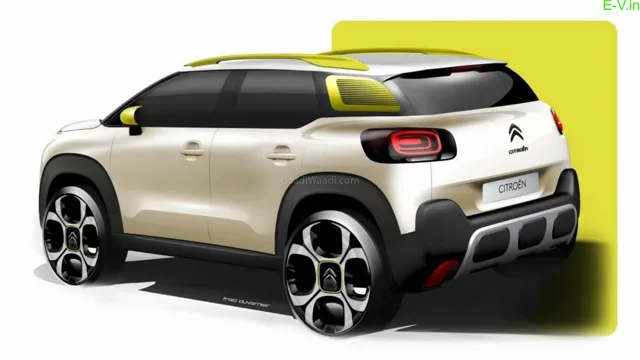
Top-selling electric cars in India and their features
The electric vehicle market in India has seen a rise in sales in recent years, indicating a growing interest in eco-friendly options. The top-selling electric cars in India include the Tata Nexon EV, MG ZS EV, and Hyundai Kona Electric. The Tata Nexon EV is a compact SUV with a 30.
2 kWh battery that offers a range of up to 312 km. This car also comes equipped with fast charging capabilities that allow it to charge up to 80% in just 60 minutes. The MG ZS EV is another compact SUV that offers a range of up to 419 km on a single charge, making it ideal for long drives.
It also comes with on-board features such as 6 airbags, a panoramic sunroof, and an 8-inch infotainment system. The Hyundai Kona Electric is a premium SUV that boasts of a 32 kWh battery and a range of up to 452 km on a single charge.
It also comes equipped with a host of safety features, including 6 airbags, hill start assist, and vehicle stability management. With a growing number of eco-conscious consumers, the electric car market in India is set to see further growth in the coming years.
Government Incentives and Policies
Electric car sales in India are on the rise, and the government is taking notice. To incentivize the shift towards electric vehicles, policies and initiatives have been put in place to make EV ownership more appealing. For example, the Faster Adoption and Manufacturing of Hybrid and Electric Vehicles (FAME) scheme provides financial incentives to individuals and businesses that purchase electric or hybrid cars.
Additionally, the government has reduced the GST on EVs from 12% to 5%, making them more affordable for consumers. These incentives have resulted in an impressive increase in sales, with electric car sales growing by over 200% from 2018 to 201 As a result, many automakers are investing in EV manufacturing in India, leading to a boost in the country’s economy and securing a greener future for all.
It’s exciting to see the government’s commitment to promoting clean energy and making EV ownership more accessible to all. With the continued growth of the electric car industry in India, we can look forward to a cleaner and more sustainable future.
Overview of government subsidies for electric cars in India
Electric cars are slowly gaining popularity in India, and the government is taking steps to encourage citizens to adopt them. To this end, the government has implemented incentives and policies to make electric cars more affordable for the general public. One such policy is the Faster Adoption and Manufacturing of Electric Vehicles (FAME) India scheme.
Under this scheme, the government provides financial incentives to the manufacturers and buyers of electric cars. Additionally, there are state-level incentives provided by various state governments, including tax waivers, registration fee exemptions, and charging infrastructure subsidies. The government is also continuously working to develop the charging infrastructure across the country to make it more convenient for electric car owners to charge their vehicles.
Although India has a long way to go before electric cars can become mainstream, government incentives and policies are a crucial step towards achieving this goal.
Impact of government policies on electric car market
The impact of government policies on the electric car market has been significant in recent years. Governments around the world have been introducing various incentives and policies to promote the use of electric vehicles. One of the most common incentives has been the provision of tax credits to electric car buyers, which has been aimed at reducing the cost of purchasing an electric car.
This has made electric vehicles more affordable, and as a result, the demand for electric cars has increased. Governments have also been investing in the development of charging infrastructure, making it easier for electric car owners to recharge their vehicles. Additionally, some governments have introduced regulations that encourage car manufacturers to produce more electric vehicles.
For example, some countries have set targets for the percentage of electric vehicles that must be sold by car manufacturers. Overall, government incentives and policies have been successful in promoting the adoption of electric vehicles, which will help to reduce carbon emissions and improve air quality.
Investments in charging infrastructure in India
Investments in charging infrastructure in India are being supported by a range of government incentives and policies. One of the key drivers of this is the National Electric Mobility Mission Plan, which was launched in 2013 with the aim of creating a market for electric vehicles and making India a leader in sustainable mobility. Under this plan, the government has established a range of initiatives to support the development of charging infrastructure, including tax incentives for companies that install charging stations, as well as funding for research and development in the sector.
In addition, the government has launched the Faster Adoption and Manufacturing of Hybrid and Electric Vehicles (FAME) scheme, which provides financial incentives for the purchase of electric vehicles and for the development of charging infrastructure. These initiatives are designed to help overcome some of the key challenges facing the electric vehicle industry in India, such as the relatively high cost of electric vehicles and the lack of charging infrastructure. By providing a supportive policy environment, the government is helping to encourage private investment in charging infrastructure and driving the growth of the electric vehicle market in India.
Challenges and Future of Electric Cars in India
Electric cars are gaining momentum in India as the country is focusing on clean energy initiatives. However, despite the government’s push towards electric vehicles, there are still some challenges that need to be addressed. One of the major challenges is the lack of charging infrastructure in the country.
There are only a limited number of public charging stations, and most of them are located in urban areas. This makes it difficult for people living in suburban and rural areas to use electric cars. Another challenge is the high cost of electric vehicles.
The upfront cost of an electric car is higher than that of a traditional car, which makes it unaffordable for many middle-class families in India. Additionally, the current battery technology can’t provide a long driving range, which leads to range anxiety among potential buyers. Despite these challenges, electric cars are the future of the automobile industry in India.
The government needs to invest in charging infrastructure and provide subsidies and incentives to make electric cars more accessible to the masses. Manufacturers need to focus on developing more efficient battery technology to provide longer driving ranges. By addressing these challenges, India can become a world leader in electric vehicles, reducing the country’s carbon footprint and contributing to a healthier planet for future generations.
Overall, the electric car India news looks promising, but there’s still work to be done to make it accessible and affordable for everyone.
Discussion of challenges facing electric car adoption in India
Electric Cars, India, Challenges, Future Electric cars are becoming increasingly popular in many parts of the world, but their adoption in India has faced several challenges. One of the main obstacles has been the lack of charging infrastructure. Unlike conventional fuel stations, electric charging stations require significant investment and time to set up, which has led to a slow roll-out across the country.
Additionally, the high cost of electric cars compared to traditional petrol or diesel vehicles has made them unaffordable for many Indian drivers. This, coupled with a lack of government incentives and subsidies, has limited their adoption. Despite these challenges, however, the future of electric cars in India is promising.
The government has set ambitious targets to increase the adoption of electric vehicles, and efforts are already underway to set up charging infrastructure and incentivize consumers to make the switch. As technology continues to evolve and become more affordable, the future looks bright for electric cars in India.
Future outlook for electric car market in India
The electric car market in India has experienced some significant growth in recent years, but there are still many challenges that need to be addressed. One of the primary hurdles is the lack of charging infrastructure, which can make it difficult for drivers to find places to charge their vehicles. Additionally, the high cost of electric vehicles can deter many consumers from making the switch.
However, there are some positive developments on the horizon, including the government’s ambitious target to have all cars sold in India be electric by 2030. In addition, the burgeoning demand for electric vehicles in India is driving innovation, leading to more affordable and accessible options for consumers. While there are still many obstacles to overcome, the future of electric cars in India looks promising.
Conclusion and Takeaways
In conclusion, the push for electric cars in India is truly electrifying! With the government providing incentives and automakers stepping up to the challenge, the future is looking bright for eco-friendly transportation. It’s time to say goodbye to the days of gas-guzzling vehicles and hello to a cleaner, greener India. So let’s charge forward and embrace the electric revolution!”
FAQs
What is the latest news on electric cars in India?
The latest news on electric cars in India is that the government is planning to offer incentives to EV manufacturers. Additionally, several major automotive companies are looking to launch their electric vehicles in the Indian market soon.
Are there currently any electric cars available in India?
Yes, there are currently several electric cars available in India, such as the Tata Nexon EV, MG ZS EV, Hyundai Kona Electric, and Mahindra e2oPlus, among others.
What is the cost of buying an electric car in India?
The cost of buying an electric car in India varies depending on the model and brand. However, on average, electric cars in India are priced between Rs. 8 lakh to Rs. 20 lakh.
What are the advantages of owning an electric car in India?
There are several advantages of owning an electric car in India, such as lower operating costs, reduced emissions, and government incentives and tax benefits. Additionally, electric cars also offer a smoother and quieter ride compared to traditional gasoline-powered cars.

